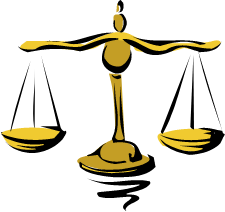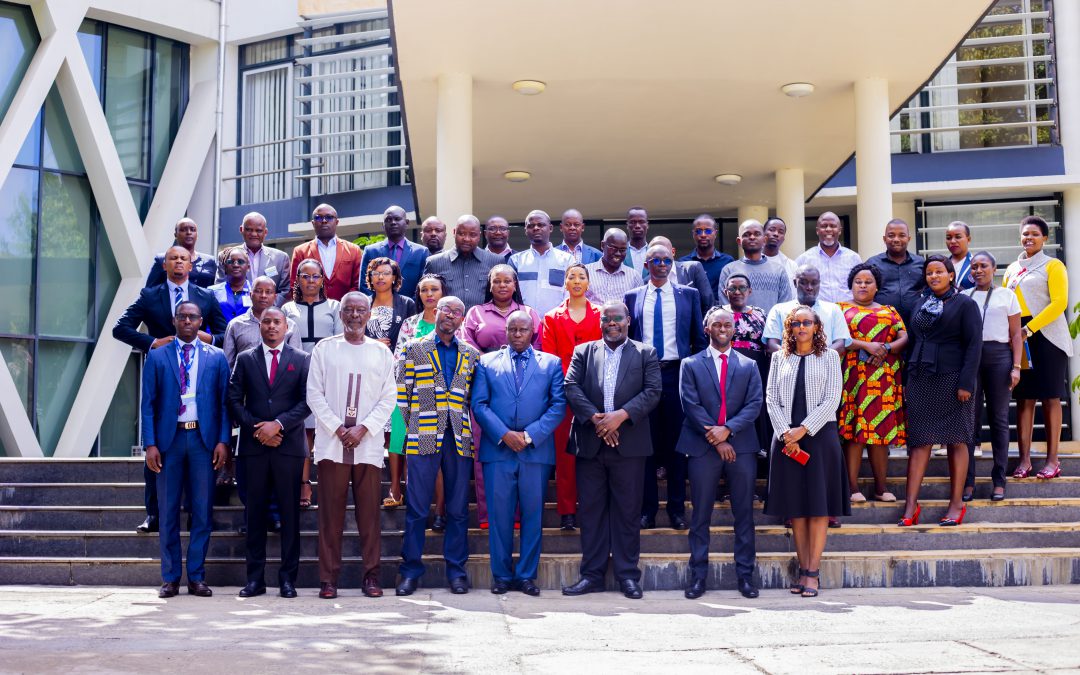East African Court of Justice, Arusha, Tanzania,11th March, 2024: The Court in collaboration with UNESCO convened the 2nd Regional Media Training, that was held at the East African Community (EAC) Headquarters in Arusha – Tanzania, from 11th to 13th March 2024.
The Judge President, Hon. Justice Nestor Kayobera who officiated the Training, expressed that, majority of East Africans, still face a challenge of limited knowledge on the existence of the East African Court of Justice and its crucial mandate in the EAC integration agenda, and this results into inadequate use of the Court. He therefore called on the media as the key players in the integration agenda, to inform East Africans on the role of the Court and decisions that have been determined. “The EAC is a people centered and market driven and therefore the Court belongs to the people of East Africa,” said President
The Deputy Registrar Ms. Christine Mutimura, in her opening remarks told the East African Media practitioners, that the EACJ has grown over the years and has a backlog of 280 cases pending before Court. “The Court therefore recognizes the role of the media to tell the public as well as holding Partner States accountable in implementing the decisions of the Court” she added
Mr. John Okande representing UNESCO, a partner in the convening the training, commended the Court for organizing this capacity building, having realized the gap in judicial reporting as well access to information that is simplified for easy public consumption. “UNESCO programs focuses on the freedom of expression, safety of journalists and access to information and the training is timely, we pledge our commitment in continuing supporting the Court” stated Okande
The Chief Executive officer Pan African Lawyers Union, Donald Deya, thanked the EACJ for the diversity of media participants that been invited: female and male; State and non-State actors; print, electronic and multimedia, those with disability. “I advocate for a more robust, more analytical, more critical reporting and dialogue on issues of Pan Africanism and EAC regional integration, I appreciate that which is being done; but I advocate for much more to be done, I do not feel that there is enough dialogue in public on the direction and pace of regional integration and continental unity, and the media can and should play a significant role in catalyzing such dialogue” expressed Counsel Deya
Mr. David Sigano, The EALS CEO represented by Achilleus Rweramila told the media that, “As media practitioners you are entrusted with the profound responsibility of being the guardians of truth, accountability, transparency and upholding of justice in our society. Your role in reporting on court judgments with accuracy, fairness, and ethical rigor is fundamental to maintaining the integrity of our legal system and ensuring public trust in the pursuit of justice and promoting the rule of law,” said Mr. Sigano
The training was facilitated by Dr. Henry Onoria a legal consultant from ALP East Africa, Mr. Jenerali Ulimwengu Media Consultant and Human rights activist, and a total of thirty-two participants from the East African Community Member states and Communication officers from regional organizations.
The Court commended UNESCO for the great support which is an implementation of the 5year MoU signed between EACJ & UNESCO.
During the 3 days training a number of topics for discussions are;
- An overview on the East African Community establishment, institutional and legal framework
- An overview of the East African Court of Justice
- EACJ Jurisprudence and the impact of its decisions
- The role of the media in implementation of Court’s decision
- Introduction to effective editing and reporting on Court matters.
- Ethics of Court reporting and how to deal with legal dilemmas.
- Reporting Court proceedings: Constraints to effective judicial reporting & possible measures
- Case study: Fair and accurate reporting of EACJ Case
- Practical exercise on Writing/Reporting on EAC Court matter (from initiation of the Case to rendering a decision)
About the EACJ
The East African Court of Justice (EACJ or ‘the Court’), is one of the Organs of the East African Community established under Article 9 of the Treaty for the Establishment of the East African Community. The Court was established in November 2001, its key mandate is to ensure the adherence to law in the interpretation and application of and compliance with the EAC Treaty. Arusha is the temporary seat of the Court until the Summit determines its permanent seat. The Court’s sub-registries are located in the capitals of the following Partner States: Burundi, Kenya, Rwanda, Uganda and United Republic of Tanzania.
For more information please contact:
Christine Mutimura
Deputy Registrar,
East African Court of Justice.
Arusha, Tanzania
Tel: 255-27-2162149
Email: cmwekesa@eachq.org

